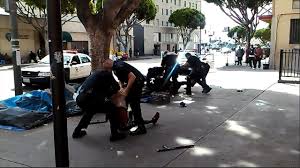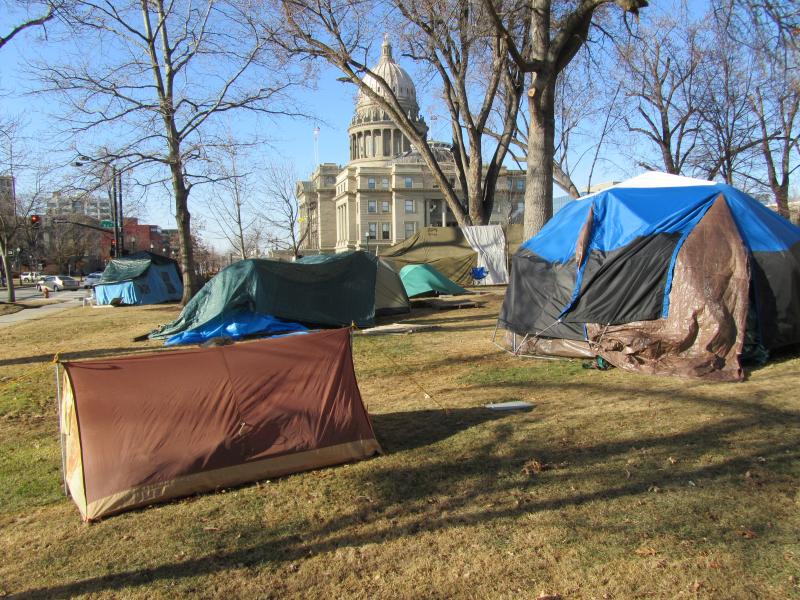 By Rebecca K. Smith, CLDC Board President & Cooperating Attorney
By Rebecca K. Smith, CLDC Board President & Cooperating Attorney
This month, the U.S. Department of Justice filed a statement of interest in a federal lawsuit challenging the City of Boise, Idaho’s ban on sleeping in public. The lawsuit, Bell v. Boise, was filed in federal court in Idaho on behalf of multiple homeless individuals who were convicted of violating Boise ordinances that prohibit camping and sleeping in public outdoor places. The plaintiffs argue that bans on sleeping in public violate their constitutional rights because there is inadequate shelter space available in Boise to accommodate the City’s homeless population. The plaintiffs also argue that criminalizing public sleeping in a city without adequate shelter space constitutes criminalizing homelessness itself, in violation of the Eighth Amendment. In its statement of interest, the DOJ agreed with this analysis and urged the federal court to find that the ban on sleeping in public is unconstitutional.
The DOJ estimates that half a million people in the U.S. are likely to be experiencing homelessness on any given day; these individuals include children, families, veterans, and the elderly. Some of these individuals are victims of the Great Recession and foreclosure crisis. Some of these individuals have serious physical and mental health conditions that are not being adequately treated with community services, and without successful treatment they are not eligible to receive housing. Other individuals may be victims of domestic violence or trafficking, or youth who are separated from their families. For many of these individuals, it is difficult to find a safe place to sleep at night. In many cities, shelters are unable to accommodate all who are homeless, so individuals must sleep on the street. As noted by the DOJ, “in 2014, 42% of homeless individuals slept in unsheltered, public locations—under bridges, in cars, in parks, on the sidewalk, or in abandoned buildings.”
This context is critical to understanding the plaintiffs’ case in Bell v. Boise, as well as other similar cases across the nation, such as a similar case filed by the ACLU against Laguna Beach, California this week. When sleeping in public places is banned, homeless individuals have no choice but to break the law, because they have nowhere else to sleep. As one court stated: It is a “foregone conclusion that human life requires certain acts, among them . . . sleeping.” And as another court further stated: it is impossible for individuals to avoid “sitting, lying, and sleeping for days, weeks, or months at a time . . . as if human beings could remain in perpetual motion.” Because every human must sleep, making it a crime for a homeless person to sleep in a public place, which is the only place they can sleep, effectively criminalizes homelessness itself. Criminalizing a human condition violates the Eighth Amendment’s prohibition against cruel and unusual punishment.
We are confident that the Boise plaintiffs will prevail, and that other towns and cities with similar laws will be challenged one by one until all of these unconstitutional laws are struck from the books. Criminalizing homelessness is blaming the victim. Instead of blaming the victims, law-makers and community organizers should be addressing the root causes of homelessness, most notably the extreme economic disparity between the rich and poor, as well as the inadequate social safety nets available for those with serious medical and mental health needs.

